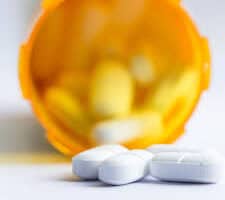In his monthly column, Dr. Kent Herbert answers your questions related to health care matters. Simply submit your question to stefaniw@newfalconherald.com. It’s your chance to ask the doc.Question: I feel sad a lot and have trouble sleeping. What can I do to help this?Answer: Depression is one of the most common medical conditions in the United States, affecting between 18 and 20 million Americans. Women are more likely to suffer from depression than men, and it is estimated that 12 percent of men and 25 percent of women will suffer a major depressive episode during his or her lifetime. Depression can range in severity from a mild, chronic depressed mood to severe depressive episodes, with thoughts of suicide.People who are depressed often feel sad, lose interest in activities they used to enjoy, cry easily and often and often feel guilty or worthless. They may also have unintended weight loss or gain, trouble sleeping or sleep too much and difficulty thinking and concentrating. To be diagnosed as having depression, a person must have several of these symptoms on most days for over two weeks.Depression can also cause a variety of physical symptoms, such as fatigue, tiredness, dizziness, stomach pain and headaches. In fact, some people with depression have more physical symptoms than mental symptoms and may think that they have a different condition. It is important to consider depression as a cause, if one experiences common and non-specific symptoms such as fatigue.It is not known what causes depression, but it is thought to be due to an imbalance of brain chemicals. This imbalance can make a person susceptible to becoming depressed, and an episode of depression is often triggered by physical or emotional stress and negative events in one’s life. Certain medications can cause depression, as can drugs, such as alcohol. Depression also runs in families and those with a relative with depression are more likely than others to be depressed themselves.Unfortunately, there is no test for depression. Brain chemicals, such as serotonin, cannot be tested in the blood; therefore, depression can only be diagnosed by talking to a medical provider who has experience with depression. Often, blood tests may be done to rule out other conditions, but no test will diagnose depression.Treatment for depression can include medications and counseling. Antidepressant medications change the brain chemicals to correct a depression and are usually very effective. Antidepressant medications are not habit forming and are designed to treat the cause, not just the symptoms, of depression. These medications can take several weeks to months to work and typically have no or mild side effects. When one starts antidepressant medications, he or she can expect to take them for three to six months or longer if needed. Counseling is also very important in the treatment of depression, either by itself or in addition to medication. Counseling can be effective for both those going through negative life events, as well as those who need help coping with feeling depressed.In addition to these treatments, there are many things that one can do to help with depression. It is important to pace yourself and not to expect to do everything that could previously be done. People with depression will usually have a lot of negative thoughts, and it is crucial not to believe the negative thinking, such as expecting to fail. It is important to not make any major life decisions when depressed, and it is best to ask someone to help with these decisions. Finally, exercising regularly four to six times a week for at least 30 minutes is very effective at improving a depressed mood, often as much as medication.If you feel depressed or have any physical symptoms that may point to depression, it is important to see your doctor right away. Depression is a serious medical condition that can have significant physical consequences. Your doctor can diagnose depression by listening to your symptoms and can begin treatment, as well as help you identify things that you can do to help yourself.Dr. Kent HerbertBoard-Certified Family PhysicianFalcon Family Medicine7641 McLaughlin RoadFalcon, CO 80831(719) 494-2006(719) 494-8448 faxwww.FalconFamilyMedicine.com






